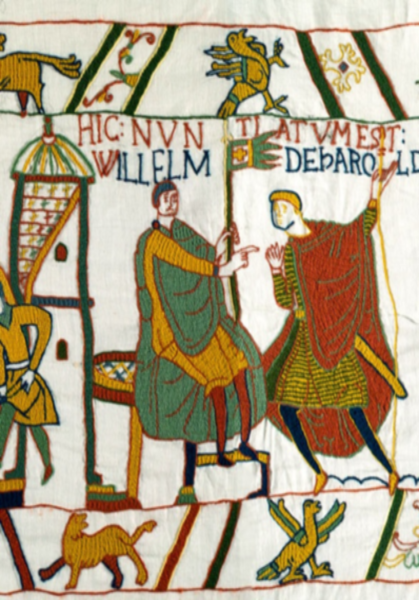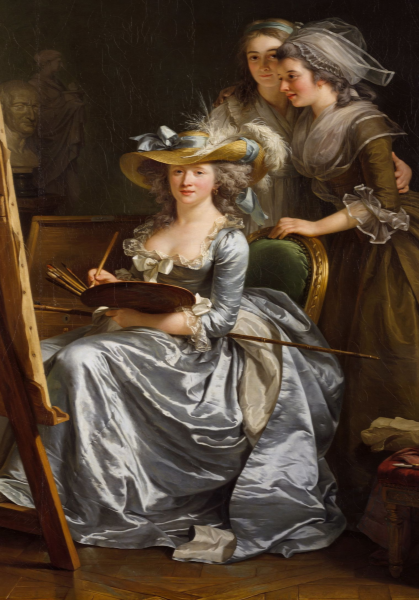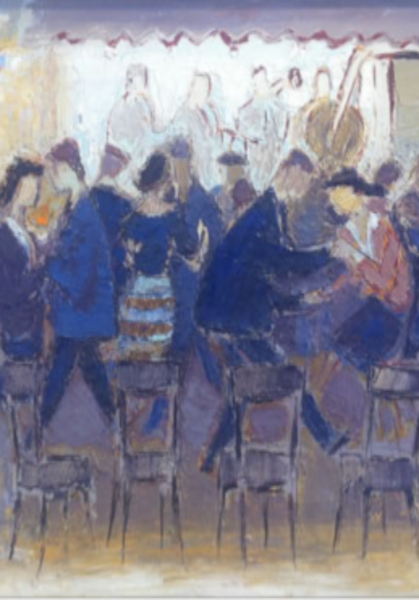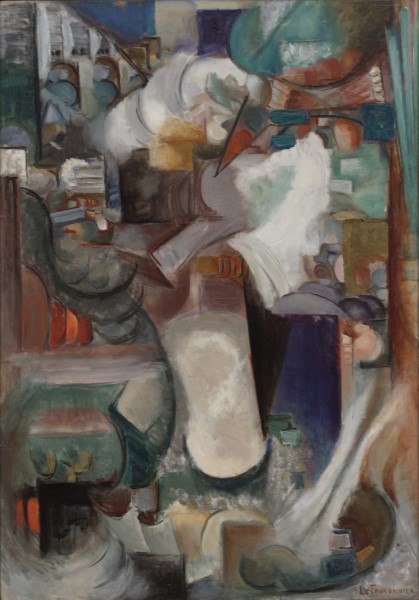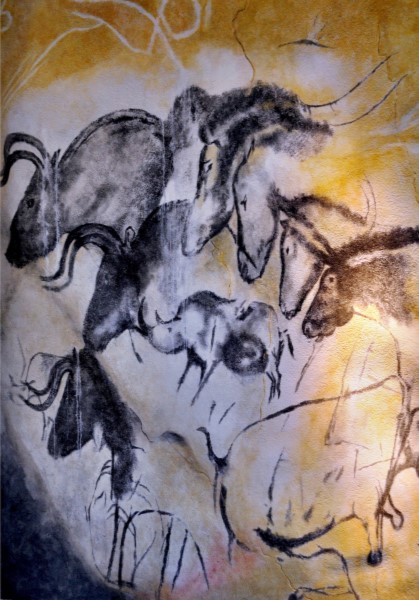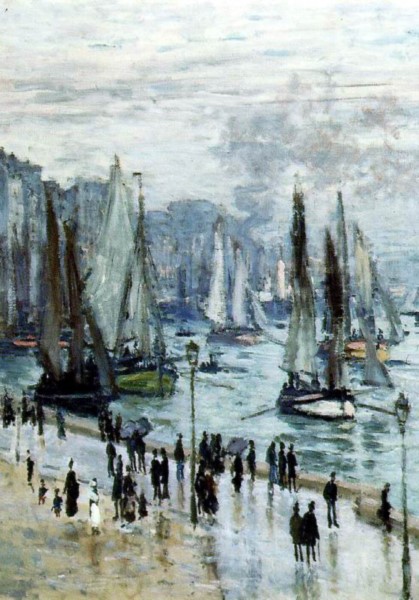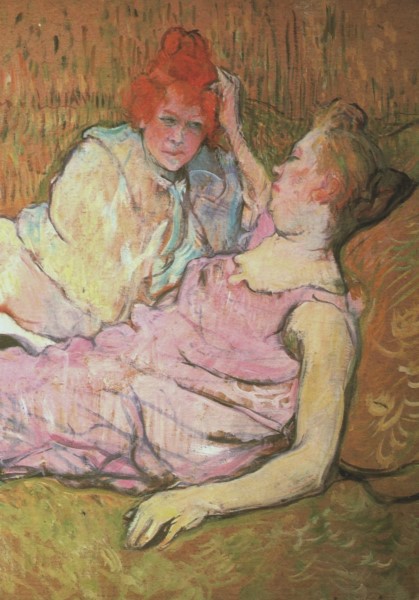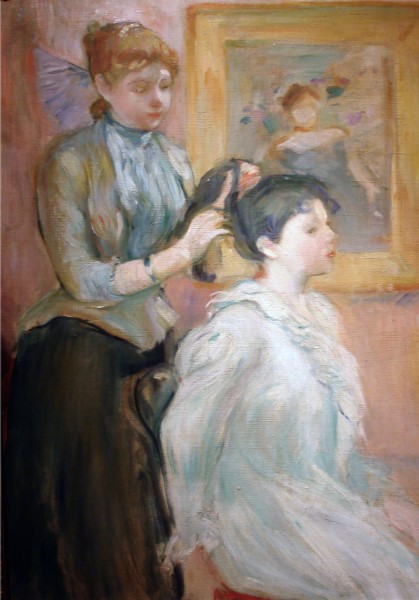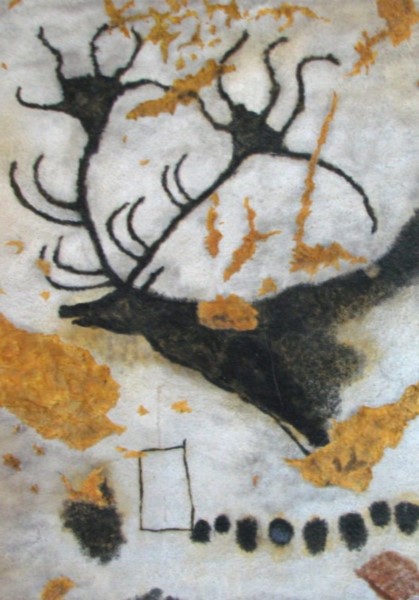Volume 13, Issue 20
French Presse: “Slave Revolt on Screen: The Haitian Revolution in Film and Video Games”
July 13, 2021

Sponsored by the Society for French Historical Studies, the French Presse dialogue series features discussions with authors about their new and forthcoming books on French and Francophone History. The Spring 2021 theme for the series is “Race, Gender, Colonialism, and Occupation.”
In the final webinar of the Spring 2021 series, Alyssa Sepinwall (California State University San Marcos) discusses her book Slave Revolt on Screen: The Haitian Revolution in Film and Video Games (University Press of Mississippi, 2021) with Christy Pichichero (George Mason University) and answers questions from the audience watching the event live.

Introduction by Christy Pichichero (George Mason University)
Video available HERE
Volume 13, Issue 19
“Global History, Imperialisms, and the French Revolution”
Edited by Jennifer Ngaire Heuer, University of Massachusetts Amherst
This H-France Salon began as a series of responses to a forum published in the journal French Historical Studies in August 2021, “The French Revolution as an Imperial Revolution,” edited by Manuel Covo and Megan Maruschke. Abstracts for those essays are available here; the original essays are temporarily open-access (https://read.dukeupress.edu/french-historical-studies/issue/44/3), and subsequently can be obtained through the journal. (The table of contents and abstracts for the forum are also a permanent part of this Salon). To engage fully with the richness and the range of questions these works raise, readers are very strongly encouraged to look at both the forum and this Salon.
These contributions, however, can also be read independently. Several offer perspectives on the revolutionary era from seemingly unusual vantage points—including Madras, Crete, and the experiences of various Native communities of North America—building on the innovative angles of the original FHS articles. But contributors seek to do more than simply add or shift geographic lenses. They also debate the more general opportunities and challenges of reframing the French Revolution in global terms. In doing so, they also seek to push our methodological and theoretical understandings not only of revolution, but also of imperialism, capitalism, and cultural change.
“Introduction: French Revolution, Empire, and Entangled Histories”
Jennifer Ngaire Heuer
University of Massachusetts Amherst
“Entangled Histories of Revolution and Empire”
Rahul Markovits
École normale supérieure
“Revolutionary France as Nation-State and as Imperial Formation: The Need to Make Distinctions”
David Bell
Princeton University
“Liberté, Égalité, Indigénéité: Some thoughts on Native Studies and the French Revolution”
Christian Crouch
Bard College
“The French Revolution and the Global Crisis of Capitalism”
John Shovlin
New York University
“Build Back Better Empire? French Revolutionary Colonial Projects in Africa and the Eastern Mediterranean”
Pascal Firges
National Taiwan Normal University
“Untangling the Global in The Age of Revolutions”
Sujit Sivasundaram
University of Cambridge
Volume 13, Issue 18
“Race, Racism, and the Study of France and the Francophone World, Part III”
Edited by:
Christy Pichichero, George Mason University
Emily Marker, Rutgers University-Camden
We have asked a diverse slate of contributors to share syllabi and reflections on how they incorporate the themes of race and racism into their teaching, especially in a global frame. Siham Bouamer, Ethan Katz, and Lorelle Semley have shared pedagogical reflections on intersectional approaches to French-African history, the colonial logics of basic French-language textbooks, and teaching anti-Semitism. Leora Auslander, Lia Brozgal, Laurent Dubois, Rachel Jean-Baptiste, Emily Marker, Sue Peabody, and Alyssa Sepinwall have all shared annotated syllabi from undergraduate and graduate courses in history, cinema, African studies, and more. Each syllabus is annotated differently; some are framed with introductory paragraphs, some have annotations throughout the body of the syllabus, and others have both. We hope that the generosity of these colleagues in sharing their syllabi and thoughts will lead to further conversation and sharing of materials in our community of educators. We also urge readers of this Salon to read and discuss recent publications on teaching race and racism in French and Francophone Studies and to reach out to colleagues in other disciplines and subfields to discuss how they approach teaching these subjects. For professors who lead study abroad programs in France and other Francophone countries, we must also think about how teaching race and racism can drive innovation in traditional and experiential learning inside and outside of the classroom.
(Explore the previous issues on “Race, Racism & the Study of France and the Francophone World Today”: Part I Part II)
“Introduction”
Christy Pichichero (George Mason University) and Emily Marker (Rutgers University-Camden)
“On Accessibility and Relevance: Recentering Colonial History and Racism in French Textbooks”
Siham Bouamer
Sam Houston State University
“Jews and Antisemitism in Teaching Modern France”
Ethan B. Katz
University of California, Berkeley
“Race as the Fil Conducteur in History Syllabi”
Lorelle Semley
College of the Holy Cross
“Race in the 20th Century Atlantic World”
Leora Auslander (University of Chicago) and Tom Holt (University of Chicago)
“France and its Others: Race, Ethnicity, and Difference in French Cinema”
Lia Brozgal
University of California, Los Angeles
“Global France”
Laurent Dubois
Duke University
“Africa, African Diasporas, and the Early Modern Atlantic World”
Rachel Jean-Baptiste
University of California, Davis
“Histories of Imperialism”
Emily Marker
Rutgers University-Camden
“French Colonial History in Fiction, Film, and Digital Media”
Sue Peabody
Washington State University
“Making the Enlightenment Relevant in the Twenty-First Century: The Enlightenment and its Readers”
Alyssa Goldstein Sepinwall
California State University, San Marcos
Volume 13, Issue 17
Webinar: “NCFS in Captivity: Balzac’s Lives”
June 4, 2021
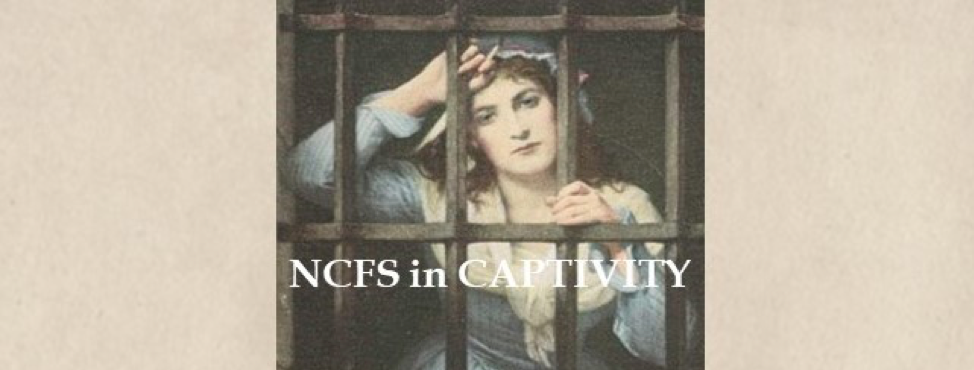
Following the postponement of the Nineteenth-Century French Studies Association’s annual colloquium, Rachel Mesch (Yeshiva University), Masha Belenky (George Washington University), and Susan McCready (University of South Alabama) arranged a series of conversations about new and forthcoming books relating to nineteenth-century France.
In the eleventh webinar of the series, Peter Brooks (Yale University) discusses his book, Balzac’s Lives (New York: Penguin Books, 2020), with Susanna Lee (Georgetown University).
Note: this webinar ends the NCFS in Captivity series for the 2020-21 academic year. The series will continue in September 2021 under its post-COVID title, NCFS Unbound. The schedule and registration information will be posted here when it is available.

Introduction by Rachel Mesch (Yeshiva University)
Video available HERE
Volume 13, Issue 16
Webinar: “NCFS in Captivity: Working Girls”
May 21, 2021

Following the postponement of the Nineteenth-Century French Studies Association’s annual colloquium, Rachel Mesch (Yeshiva University), Masha Belenky (George Washington University), and Susan McCready (University of South Alabama) arranged a series of conversations about new and forthcoming books relating to nineteenth-century France.
In the tenth webinar of the series, Patricia Tilburg (Davidson College) discusses her book, Working Girls: Sex, Taste, and Reform in the Parisian Garment Trades, 1880-1919 (Oxford: Oxford University Press, 2019), with Susan Hiner (Vassar College).
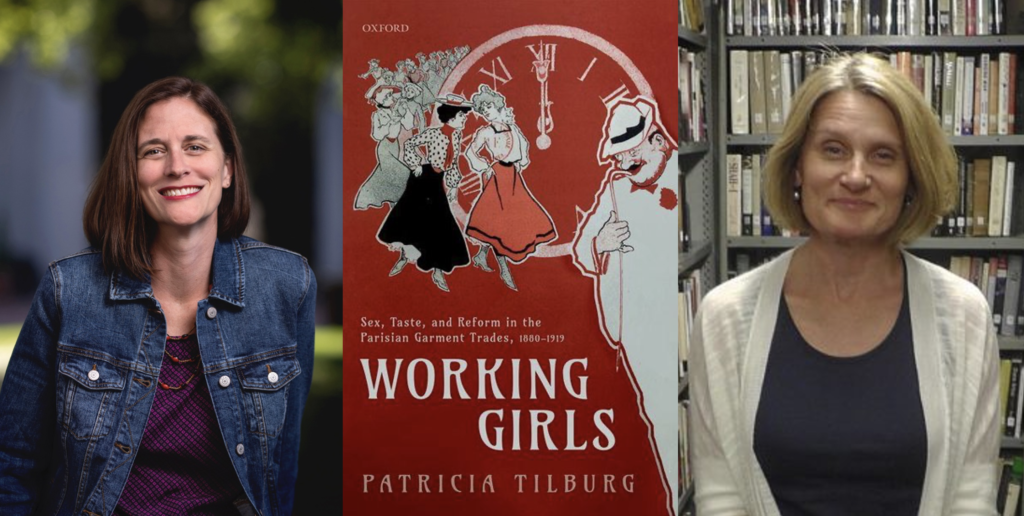
Introduction by Masha Belenky (George Washington University)
Video available HERE
Volume 13, Issue 15
Plenary Session: “Pouvoir des maîtres et contrôle de l’état dans les Antilles françaises, 1626-1789”
Plenary Session at the 34th Annual Conference for The Society for the Study of French History, June 30, 2021 (held virtually via Zoom)
Chair: Colin Jones, Queen Mary University of London
Frédéric Régent, Université Paris 1 Panthéon-Sorbonne
Video
Volume 13, Issue 14
Plenary Session: “Exhibiting Resistance: Thoughts from the Front Line”
Plenary Session at the 34th Annual Conference for The Society for the Study of French History, June 28, 2021 (held virtually via Zoom)
Chair: Ludivine Bloch, University of Westminster
Hanna Diamond, Cardiff University
Video
Volume 13, Issue 13
“Proust at Home: A Centennial Celebration of Le Côté de Guermantes”
Edited by:
Patrick Bray, University College London
Jennifer Rushworth, University College London

Marcel Proust published Le Côté de Guermantes in two volumes in 1920 and 1921. To celebrate this twin anniversary, H-France Salon is publishing a special issue dedicated to the theme of “Proust at Home.” The third volume of Proust’s Recherche begins with the narrator’s family moving into the Hôtel de Guermantes, marking a changed sense of domesticity in the novel as characters from vastly different social spheres cohabitate in close proximity. Other major themes of this volume also resonate today, such as the Doncières episode, the first descriptions of the Affaire Dreyfus, Swann’s illness, and the grandmother’s death.
Contemporary readers of Proust have just experienced months of lockdown, confined to our homes, close to but separated from neighbours and family. At this time, we might particularly envy aspects of the protagonist’s social life, such as his attending a performance of La Berma at the Opéra, dining with Saint-Loup and friends at Doncières, watching Saint-Loup’s mistress Rachel on stage, or being invited to dinner with the Guermantes. And yet, like the narrator, we have had to come to terms with new ways of living at home, some by compulsive Zooming (the narrator’s telephone call to his grandmother), some by cooking (Françoise’s déjeuner or the society dîner), others by taking up craft projects (Mme de Villeparisis painting), and others still by rereading Proust. How do we engage with Proust at home, as opposed to at the office or in the library?
“Proust at Home: A Centenary Celebration of Le Côté de Guermantes”
Patrick Bray (University College London) and Jennifer Rushworth (University College London
“Le Théâtre dans Le Côté de Guermantes : « Un Passage éventuel vers un monde nouveau »”
Laurence Miens
Université de Paris X-Nanterre
“Geography and Psychology: The Battlefield of Doncières”
Chiara Nifosi
University of Chicago
“Le jeu du téléphone proustien : herméneutique de l’écoute dans À la recherche du temps perdu”
Isabelle Perreault
Université du Québec à Rimouski
“Proust’s Family at Home”
Katherine Elkins
Kenyon College
“Seaside Mountain Cherries in Full Bloom”
Olivia Meehan
University of Melbourne
“My Present Illness: Fragments on Proust, Cancer, and Death”
Igor R. Reyner
Universidade Federal de Ouro Preto
“The Grandmother’s Visit to the Champs-Élysées: A Proustian Tombeau”
Ralph Sarkonak
University of British Columbia
“The Guermantes’s Elstirs and Proust as Virtual Museum”
Maury Bruhn
The University of North Carolina at Chapel Hill
“Charlus at Home, or the Verbal Pursuit of Pleasure”
Adeline Soldin
Dickinson College
Video: “Song at Home: ‘Adieu’ to the duchesse de Guermantes”
Jennifer Rushworth
University College London
Volume 13, Issue 12
French Presse: “Wicked Flesh: Black Women, Intimacy, and Freedom in the Atlantic World”
May 16, 2021

Sponsored by the Society for French Historical Studies, the French Presse dialogue series features discussions with authors about their new and forthcoming books on French and Francophone History. The Spring 2021 theme for the series is “Race, Gender, Colonialism, and Occupation.”
In the fifth webinar of the Spring 2021 series, Jessica Johnson (Johns Hopkins University) discusses her book Wicked Flesh: Black Women, Intimacy, and Freedom in the Atlantic World (University of Pennsylvania Press, 2020) with Lorelle Semley (College of the Holy Cross) and answers questions from the audience watching the event live.
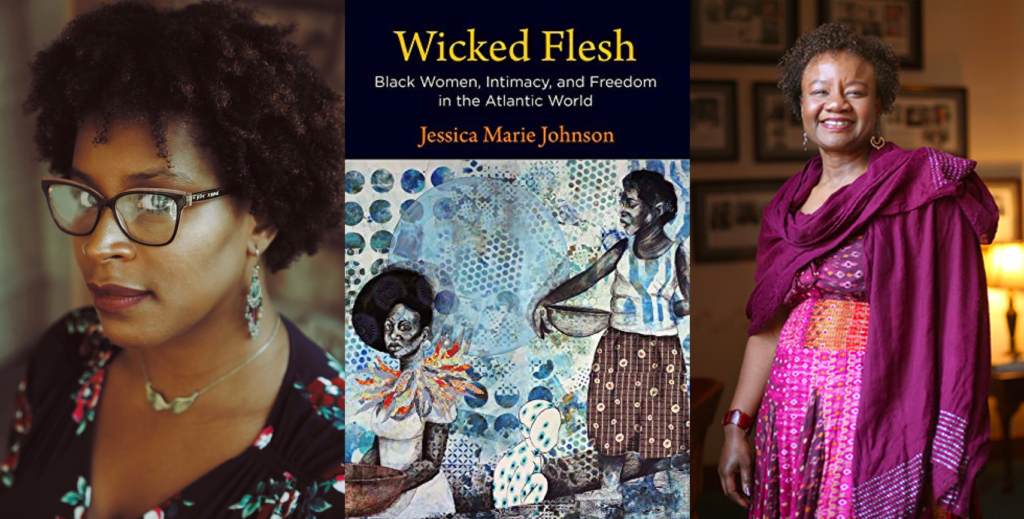
Introduction by Jeff Horn (Manhattan College) and Sally Charnow (Hofstra University)
Video available HERE
Volume 13, Issue 11
French Presse: “Reproductive Citizens: Gender, Immigration, and the State in Modern France, 1880-1945”
April 18, 2021

Sponsored by the Society for French Historical Studies, the French Presse dialogue series features discussions with authors about their new and forthcoming books on French and Francophone History. The Spring 2021 theme for the series is “Race, Gender, Colonialism, and Occupation.”
In the fourth webinar of the Spring 2021 series, Nimisha Barton (University of California, Irvine) discusses her book Reproductive Citizens: Gender, Immigration, and the State in Modern France, 1880-1945 (Cornell University Press, 2020) with Emmanuelle Saada (Columbia University) and answers questions from the audience watching the event live.

Introduction by Jeff Horn (Manhattan College) and Sally Charnow (Hofstra University)
Video available HERE
Volume 13, Issue 10
Webinar: “NCFS in Captivity: The Fallen Veil”
April 16, 2021

Following the postponement of the Nineteenth-Century French Studies Association’s annual colloquium, Rachel Mesch (Yeshiva University), Masha Belenky (George Washington University), and Susan McCready (University of South Alabama) arranged a series of conversations about new and forthcoming books relating to nineteenth-century France.
In the ninth webinar of the series, Raisa Rexer (Vanderbilt University) discusses her book, The Fallen Veil: A Literary and Cultural History of the Photographic Nude in Nineteenth-Century France (Philadelphia: University of Pennsylvania Press, 2021), with Alexandra Wettlaufer (University of Texas-Austin).
Special note: Rexer’s book and this recording contain images of nudity that may not be suitable for all audiences.

Introduction by Rachel Mesch (Yeshiva University)
Video available HERE
Volume 13, Issue 9
“Remembering Dominique Kalifa (1957-2020)”
Edited by:
Venita Datta, Wellesley College
Stéphane Gerson, New York University
Robin Walz, University of Alaska Southeast
This H-France Salon is the result of a friendship the three editors shared with Dominique Kalifa. It was born in the immediate aftermath of his untimely passing on September 12, 2020, in a flurry of emails, texts, and phone calls. As we mourned Dominique, we decided to honor his memory by asking colleagues, on both sides of the Atlantic, to share personal memories as well as reflections on his wide-ranging oeuvre and his central contribution to our academic world. The Salon includes eight essays by eleven contributors from France, the United States, and Canada as well as a recorded roundtable featuring three other scholars based in the U.S. and France. The international scope of Dominique’s work included exchanges with scholars in other parts of Europe, Latin America, and Asia as well; this Salon is by no means comprehensive.
“Remembering Dominique Kalifa (1957-2020)”
Venita Datta (Wellesley College), Stéphane Gerson (New York University), and Robin Walz (University of Alaska Southeast)
“L’envers du quotidien”
Marie-Ève Thérenty
Université de Montpellier
“L’imaginaire social, à la vie à la mort”
Anne-Emmanuelle Demartini
Université Sorbonne Paris Nord
“Les voix de Dominique K.”
Stéphane Gerson
New York University
“Dominique Kalifa: L’art du passeur”
Quentin Deluermoz (Université de Paris), Thomas Dodman (Columbia University), and Hervé Mazurel (Université de Bourgogne)
“L’éclaireur d’imaginaires”
Mélodie Simard-Houde
Université du Québec à Trois-Rivières
“Life is a Cabaret: Exploring the bas-fonds with Dominique Kalifa”
Andrea Goulet
University of Pennsylvania
“You Will Enter into the Century by Reading Fantômas”
Robin Walz
University of Alaska Southeast
Société des Amis de Fantômas, Membre Malfaiteur no. 54
“La Belle Époque des Chrononymes”
Venita Datta (Wellesley College) and Willa Z. Silverman (The Pennsylvania State University)
Video: “Roundtable in Honor of Dominique Kalifa”
Participants:
Mame-Fatou Niang, Carnegie Mellon University
John Merriman, Yale University
Miranda Spieler, American University of Paris
Stéphane Gerson, New York University (Moderator)
Volume 13, Issue 8
Webinar: “NCFS in Captivity: Discomfort Food”
March 5, 2021

Following the postponement of the Nineteenth-Century French Studies Association’s annual colloquium, Rachel Mesch (Yeshiva University), Masha Belenky (George Washington University), and Susan McCready (University of South Alabama) arranged a series of conversations about new and forthcoming books relating to nineteenth-century France.
In the eighth webinar of the series, Marni Kessler (University of Kansas) discusses her book, Discomfort Food: The Culinary Imagination in Late Nineteenth-Century French Art (Minneapolis: University of Minnesota Press, 2021), with Janet Beizer (Harvard University).

Introduction by Masha Belenky (George Washington University)
Video available HERE
Volume 13, Issue 7
French Presse: “The Memory of Colonialism in Britain and France: The Sins of Silence”
March 14, 2021

Sponsored by the Society for French Historical Studies, the French Presse dialogue series features discussions with authors about their new and forthcoming books on French and Francophone History. The Spring 2021 theme for the series is “Race, Gender, Colonialism, and Occupation.”
In the third webinar of the Spring 2021 series, Itay Lotem (University of Westminster) discusses his book The Memory of Colonialism in Britain and France: The Sins of Silence (Cambridge University Press, 2021) with Charlotte Faucher (University of Manchester) and answers questions from the audience watching the event live.
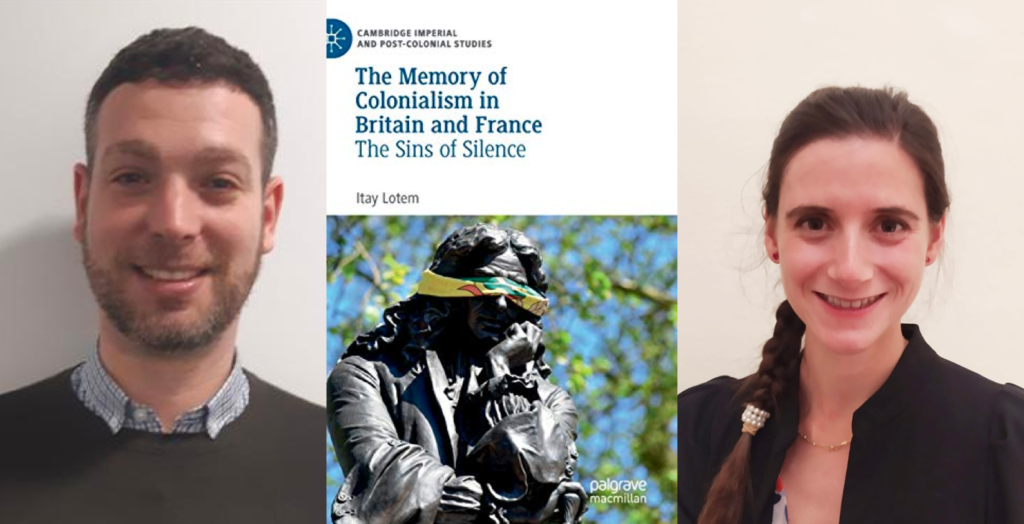
Introduction by Jeff Horn (Manhattan College) and Sally Charnow (Hofstra University)
Video available HERE
Volume 13, Issue 6
French Presse: “Militarizing Marriage” and “Hostages of Empire”
February 28, 2021

Sponsored by the Society for French Historical Studies, the French Presse dialogue series features discussions with authors about their new and forthcoming books on French and Francophone History. The Spring 2021 theme for the series is “Race, Gender, Colonialism, and Occupation.”
In the second webinar of the Spring 2021 series, Sarah Zimmerman (Western Washington University) discusses her book Militarizing Marriage: West African Soldiers’ Conjugal Traditions in Modern French Empire (Athens: Ohio University Press, 2020) and Sarah Ann Frank (University of St. Andrews) discusses her book Hostages of Empire: Colonial Prisoners of War and Vichy France (Lincoln: University of Nebraska Press, 2021, forthcoming) with Ruth Ginio (Ben Gurion University of the Negev), and they answer questions from the audience watching the event live.

Introduction by Jeff Horn (Manhattan College) and Sally Charnow (Hofstra University)
Video available HERE
Volume 13, Issue 5
French Presse: “White Freedom: The Racial History of an Idea”
January 24, 2021

Sponsored by the Society for French Historical Studies, the French Presse dialogue series features discussions with authors about their new and forthcoming books on French and Francophone History. The Spring 2021 theme for the series is “Race, Gender, Colonialism, and Occupation.”
In the first webinar of the Spring 2021 series, Tyler Stovall (Fordham University) discusses his book, White Freedom: The Racial History of an Idea (Princeton: Princeton University Press, 2021), with Alyssa Sepinwall (California State University at San Marcos) and answers questions from the audience watching the event live.

Introduction by Jeff Horn (Manhattan College) and Sally Charnow (Hofstra University)
Video available HERE
Volume 13, Issue 4
“Memmi@100: A Centenary Celebration”
Edited by:
Lia Brozgal, University of California, Los Angeles
Jonathan Judaken, Rhodes College
Born in the hara on the borderline between the Jewish and the Muslim quarters in Tunis on December 15, 1920, Albert Memmi died at 99 on May 22, 2020. In celebration of his centenary, five scholars of Memmi’s work explore some of the powerful legacies opened by his oeuvre: his contributions to literature and literary theory; his reflections on origins, exile, homelands, and belonging; his consideration of the relationship between Zionism and the Left; his critical insights on the postcolonial condition and his commitment to radical candor; and his powerful analysis of the entanglements of racism and Judeophobia, along with his prescient anti-racist prescription. Coinciding with the release of Memmi’s Les Hypothèses infinies: Journal 1936-1962 and Judaken and Lejman’s co-edited compendium, The Albert Memmi Reader, these short essays are soundings intended to both laud Memmi’s contributions, but also to serve as examples of a new era of scholarly engagement with his work
“Introduction”
Lia Brozgal (University of California, Los Angeles) and Jonathan Judaken (Rhodes College)
“Memmi’s Novels, in Practice and in Theory”
Lia Brozgal
University of California, Los Angeles
“The Architecture of Home in the Works of Albert Memmi”
Margaux Fitoussi
Columbia University
“Albert Memmi, Zionism, and the Left”
Susie Linfield
New York University
“Radical Candor: On Albert Memmi (1920-2020)”
Daniel Gordon
University of Massachusetts, Amherst
“Memmi on Racism and (Post-Holocaust) Judeophobia”
Jonathan Judaken
Rhodes College
Volume 13, Issue 3
Webinar: “NCFS in Captivity: The Culture of War”
February 12, 2021

Following the postponement of the Nineteenth-Century French Studies Association’s annual colloquium, Rachel Mesch (Yeshiva University), Masha Belenky (George Washington University), and Susan McCready (University of South Alabama) arranged a series of conversations about new and forthcoming books relating to nineteenth-century France.
In the seventh webinar of the series, Colin Foss (Austin College) discusses his book, The Culture of War: Literature of the Siege of Paris 1870-1871 (Liverpool: Liverpool University Press, 2020), with Nick White (Cambridge University).
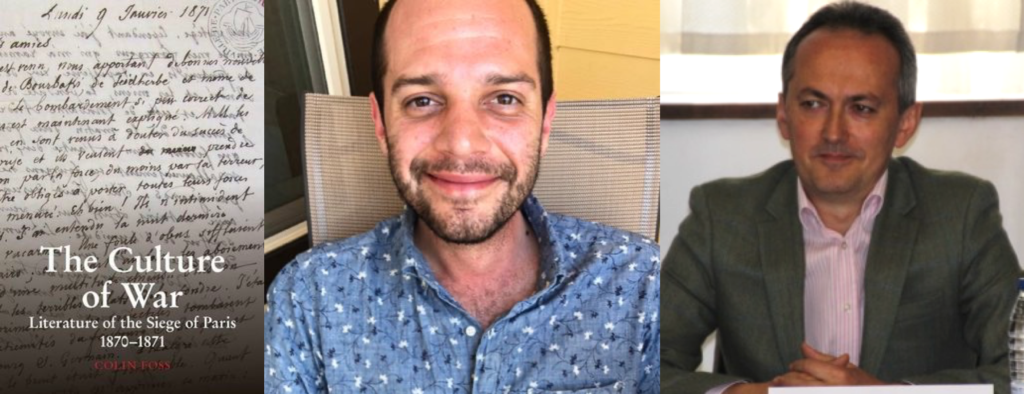
Introduction by Susan McCready (University of South Alabama)
Video available HERE
Volume 13, Issue 2
Webinar: “NCFS in Captivity: Popular Literature from Nineteenth-Century France”
January 22, 2021

Following the postponement of the Nineteenth-Century French Studies Association’s annual colloquium, Rachel Mesch (Yeshiva University), Masha Belenky (George Washington University), and Susan McCready (University of South Alabama) arranged a series of conversations about new and forthcoming books relating to nineteenth-century France.
In the sixth webinar of the series, Masha Belenky (George Washington University) and Anne O’Neil-Henry (Georgetown University) discuss their book, Popular Literature from Nineteenth-Century France (New York: The Modern Language Association of America, 2020), with Andrea Goulet (University of Pennsylvania). The book is part of the MLA Texts and Translations series.
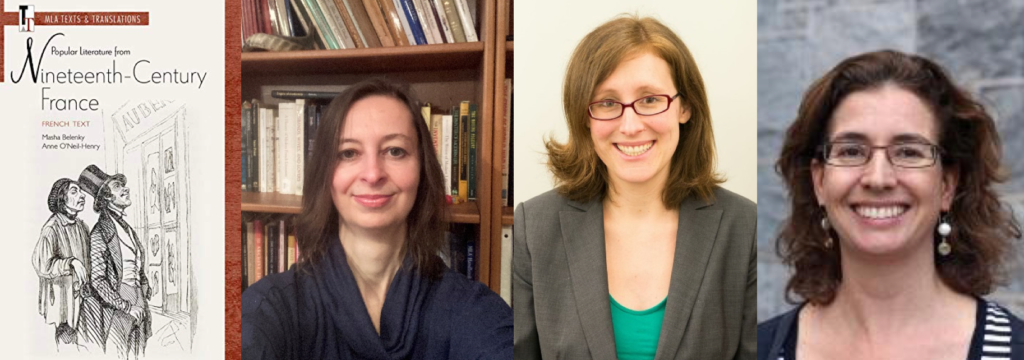
Introduction by Rachel Mesch (Yeshiva University)
Video available HERE
Volume 13, Issue 1
Webinar: “NCFS in Captivity: Reframing Japonisme”
December 18, 2020

Following the postponement of the Nineteenth-Century French Studies Association’s annual colloquium, Rachel Mesch (Yeshiva University), Masha Belenky (George Washington University), and Susan McCready (University of South Alabama) arranged a series of conversations about new and forthcoming books relating to nineteenth-century France.
In the fifth webinar of the series, Elizabeth Emery (Montclair State University) discusses her book Reframing Japonisme: Women and the
Asian Art Market in Nineteenth-Century France, 1853-1914 (New York: Bloomsbury, 2020) with Willa Z. Silverman (The Pennsylvania State University).
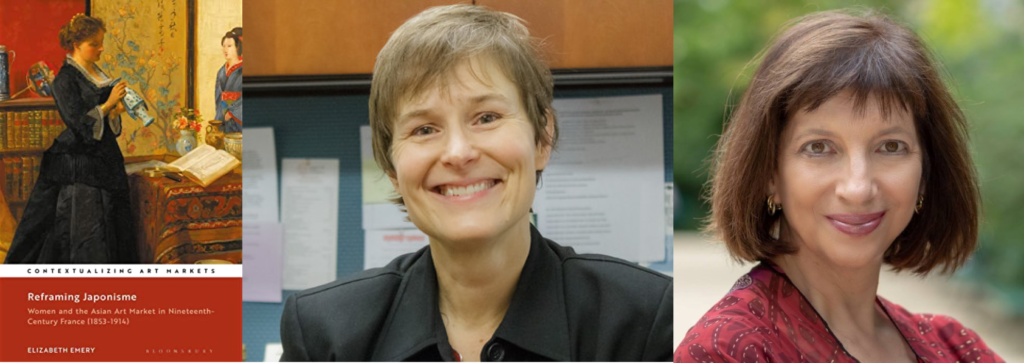
Introduction by Masha Belenky (George Washington University)
Video available HERE




